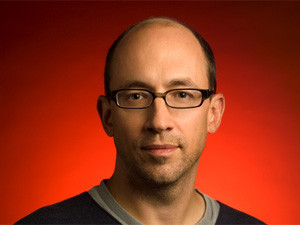
Popular micro-blogging platform Twitter now sends a billion tweets every two-and-a-half days, according to Twitter CEO Dick Costolo.
Costolo revealed some new statistics about Twitter, while giving a talk about the role of the service in the future of global communication, at his alma mater, the University of Michigan.
"It took three years, two months and one day for the first billion tweets to be sent. From the time the company started in 2006 to mid-2009, three years, two months and one day, for the first billion tweets to be sent. We now send a billion tweets every two-and-a-half days. So the volume, the noise level, has increased dramatically." In early 2011, Twitter reported that 140 million tweets were being sent every day on the service.
Costolo also promised that by year-end, Twitter users will be able to download full archives of their tweets. This was a promise he first made in September, and he has now reiterated that vow, but also explained some of the challenges involved in implementing it.
Responding to a question from a member of the audience, Costolo said: "The question is, 'why are users not allowed to download their tweet history?' It's funny; the question makes it sound like I won't let them. So here's the deal: during the night of the presidential election, there was a point at which we were serving 1.3 million timelines. A timeline is my home timeline of all the tweets of the people I'm following; 1.3 million timelines per second.
"So keep in mind that's every second 1.3 million timelines going out that are threading together every single tweet that's coming in from around the world at 15 000 tweets per second, and organising them in chronological order," said Costolo, adding that Twitter's architecture is well suited to real-time search and real-time distribution. "It's really horribly suited to archive search and archive distribution. So if you wanted to do a search against our user database for that entire history, it would be so slow that it would slow down the rest of the real-time distribution of things."
Tweet archives
According to Costolo, Twitter is now working on creating a "different kind of archival system", which will enable users to download the archive history of their tweets. "By the end of the year, I've already promised this, so the engineers - when I promised it publicly they're already mad at me so they can keep being mad at me. By the end of the year, you'll be able to download the archive history of your entire tweets.
"Once again, I caveat this with the engineers who are actually doing the work don't necessarily agree that they'll be done by the end of the year, but we'll just keep having that argument and we'll see where we end up year-end."
Other facts Costolo revealed about Twitter included that the service now has 500 million users, sending over 350 million tweets per day. Costolo also emphasised that Twitter would "never change" its 140-character limit.
Speaking of the disruptive force Twitter has been to traditional media, Costolo said: "The history of technology traditionally has been disruptive or disintermediating to existing media companies." According to him, Twitter as a platform provides a means to see multiple perspectives on any news story or event. "We start to have a shared experience across the globe about what's happening and what we're viewing right now. We get an unfiltered perspective on what's happening.
"But at the same time, it complements all these traditional forms of broadcast media, and all sorts of fascinating in ways that we would have never predicted when Twitter was getting started. And, in fact, it continues to happen in ways that we can't predict and we haven't predicted. So, for example, on television when there's an event on television like a major sporting event like the Olympics, or the debates, or of course the reporting of the presidential election, it is increasingly the case that Twitter is the shared experience."
Global pulse
According to Costolo, when asked how he sees Twitter, he likes to say "Twitter is the pulse of the planet". "The implications for this when you can hear the entire pulse of the planet, when you can hear what the world is thinking, are really, really cool.
"For example, if you had told me years ago that I wanted to go and study literature somewhere and I can go to a school where I can sit in the audience and the world's great authors are going to talk to me about character development and writing style and differences in writing style, and they're not just going to talk to me about that in a way that I can engage with and ask them questions about that they will answer, but they're going to engage with other great authors of the world who write in similar genres, fiction, biography, etc. And the same thing is true about every sort of possible interest you could have.
"[Twitter] gives a voice to everyone in the world, and it's a completely levelled playing field, and we all have equal access, and all of us can reach any of the other end points."
Costolo also believes there is a lot of interesting engineering and social communication work to be done inside the company to ensure it is "surfacing the right signal" through all the "noise" generated by the billions of tweets being sent.
"We have 700 engineers, and one of the things that I've challenged the engineers to do is as more and more signal pours into Twitter, it's going to be increasingly hard for us - for our users rather - to discover the content that's most interesting to them."
Share